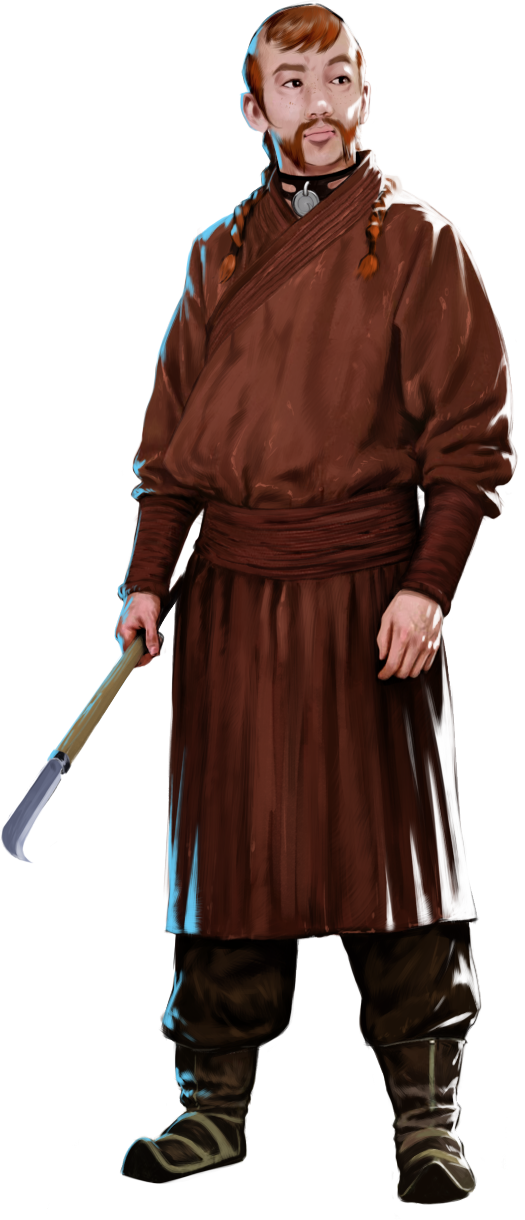Bool and Albatu
 Bool and Albatu
Bool and Albatu
The Hugond wiped out the coastal towns of the settlers in the Second Blood war over one hundred and ninetyyears ago with some of the populace escaping by sea and the remainder put to the sword. What is not commonly known is that the Hugond did not kill all of the settlers but rather took captives as well. Those that had fought were indeed killed but numbers of civilians, especially women and children, were taken captive and marched off in to the steppe. They were given ‘mercy’ by these Hugond tribes and kept as slaves left in various locations to raise crops and practice specialist skills such as blacksmithing and the likes. Some of the fairer women were kept as concubines but overall the settler slaves were given mundane duties the Hugond did not wish to carry out. It has been eight generations, 190 years, since the settler towns were conquered and these slaves have little to no knowledge of their ancestors save they were foreign invaders who fought and lost a war to destroy the Hugond. No slave is allowed to bear arms and none are officially members of the Hugond tribes though some have very close and warm relationships others are treated as cattle; it varies dramatically.
Bool are general tribal slaves made up of the descendants of settlers and sometimes of a mixed, Halvras, ancestry. When the initial settler towns fell a number of the captured women were impregnated by the Hugond men in the orgy of violence and destruction that followed the anger and hatred of the war. They are not pure Hugonds and are not tribe members so may not bear arms nor own property. They are often called mongrels by their masters.
Albatu are gifted slaves either owned by individuals or ones with skills beyond those of everyday bools. They are allowed to serve the tribe and to pass on their skills to their children who in turn practice their ancestor’s crafts. They are still not members of the tribe but have a higher standing and are treated better. They may own the tools of their crafts and some personal effects and they may not be taken as concubines or otherwise used by tribal members.
The Bool and Albatu have been in the service of their Hugond masters for close to two hundred years. They are culturally much closer to the Hugond in manner of dress and social practices. They are mostly illiterate and only speak Gond; they are ignorant of the world outside. Most are farmers destined to carry out the demeaning tasks of tilling the soil while a minority are skilled craftsmen who produce items and services for their Hugond masters. The slaves live in small villages close to Hugond encampments which are not always occupied given the migratory nature of their masters. When the Hugond return they expect crops tended or harvested and items made and if they are not done to the demanded standard there will be repercussions. Each village has a Albatu Hetman who must bear the responsibility for the actions of his fellow slaves and while death is a rare punishment, flogging and mutilation is not. The role of Hetman can be one of relative luxury but is also a precarious one.
It is important to note that not all Hugond tribes have slaves and it is really only those with lands near the ruins of the old settler towns. Indeed slavery was not practised prior to the Blood Wars.Some Hugond tribes are vocally anti-slavery such as the Duglat and the Ungud peoples while others are very much in favour of it such as the slave owning Khadagin people. They are not talked about with non-Hugond and the matter is very much taboo with foreigners and especially the Crimson Coasters.
Albatu Illustration by Pino44io- please do not use without permission